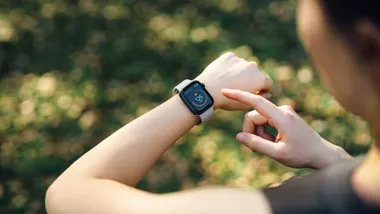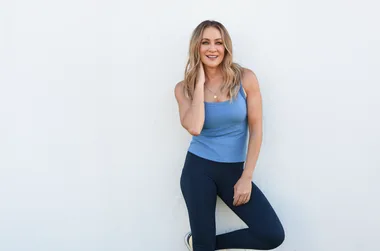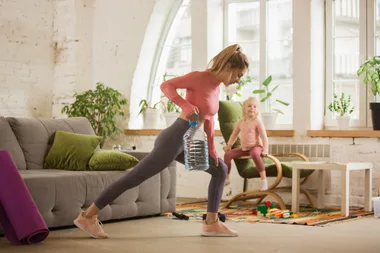Some people have never been fit, and never want to be. Others were fit, but have grown older and out of it. Lots of people have stayed fit and healthy their whole lives.
But some champions like Kerry Lane, 45 — an evaluation officer from Brunswick West in Victoria — have never been fit or particularly healthy, but sometime in or around their 40s, they got their acts together and are now in greater shape than ever.
Kerry lost an astounding 75kg in two years … taking herself from a dangerously obese 145kg, to a trim and much healthier 70kg, a weight she maintains today.
And having lost all that weight, Kerry has gained a quality of life she never dreamed possible — and that includes being more active than at any other time of her life.
“Ever since I can remember, I was always the fat kid at school — the one who was always picked last for any sporting teams; the one that struggled to join in the games; the one who had to get a school uniform custom made because the uniforms in the shop weren’t big enough. Things just seemed to get worse as I got older.
“I put on a brave front but inside I was angry, hurt and humiliated. I was too embarrassed to go anywhere, always thinking: ‘What must people think of me?’ I was in danger of shutting myself away from the rest of the world. I felt like I had no control over my weight or any part of my life. It was like being a prisoner in my own body. I was tired all the time and found it hard to cope with stress.
“I never want to go back to that desperately unhappy person who hated herself more than words can describe.”
So just after Kerry hit the age of 40, she decided to enlisted the help of Weight Watchers to help her with the daunting task for losing around half her body weight.
“The thought of having to lose nearly half of me was almost overwhelming,” she admits. “I think that if I had concentrated on having to lose 70-plus kilos I would have given up long before reaching my goal. Instead of looking at the overall loss, I set myself smaller goals of losing each 5kg.”
Before joining Weight Watchers and making her enormous life-change, Kerry admits she did very little exercise.
“I was lucky if I walked the dog twice a week,” she says. “Now I walk at least an hour and a half a day and I go to the gym three times a week. I’m trying new forms of exercise that I have always thought looked fun but never had the courage to try. I’ve played golf, taken belly-dancing lessons, done Tai Chi, been boogie boarding and even tried to ride a bike!
“Someone asked me what the best part of losing weight has been and aside from the obvious health benefits, I said the best part is that now I smile and laugh a whole lot more!”
If you’re an “over-40” and inspired now to get fitter and healthier than ever … go for it!
See a GP for a general health check-up first. Then visit a physio to discuss your exercise goals and any previous or current injuries that may hinder you.
Remember to consult your doctor if you experience any chest pain when exercising.
“Small is more” — start off slowly and gently. A little bit of exercise every day is better than a lot of exercise twice a week. It will give your body the opportunity to safely adapt to the new physical demands.
Walking, cycling and swimming are excellent forms of gentle exercise that are good to begin with.
Always spend some time gently stretching — 10 minutes per day should be enough. A good time to stretch is after your bath or shower when your body is warm. Remember to stretch your legs, arms and back.
Ensure that you have a well-fitting and comfortable pair of athletic shoes that are less than six-months-old. Many sporting footwear shops will assist you in selecting the “right” shoe for you.
Your bones may not be as strong as when you were younger. Be careful of foot or shin pain when walking on hard surfaces. Stress fractures can occur when your bones have not been subjected to impact forces for many years. Avoid fast walking on hard, inclined surfaces.
The cartilage in your knees may be beginning to wear out. This is a normal process that can actually be helped by your exercise program. Avoid exercises that require you to deeply squat or twist on your knees.
Related video:










